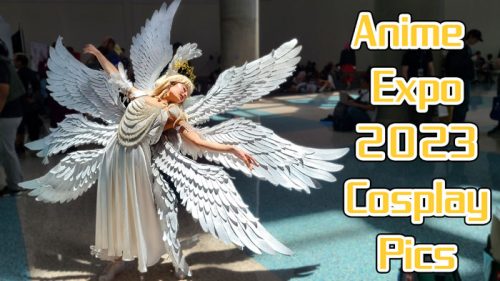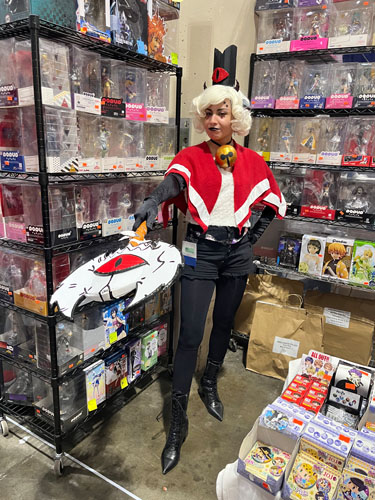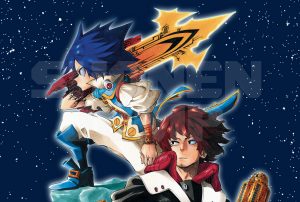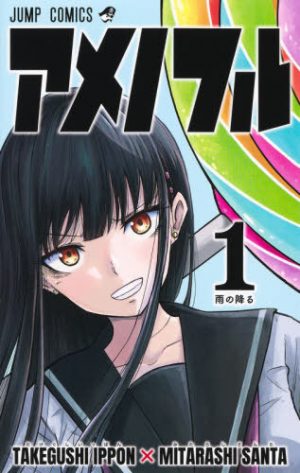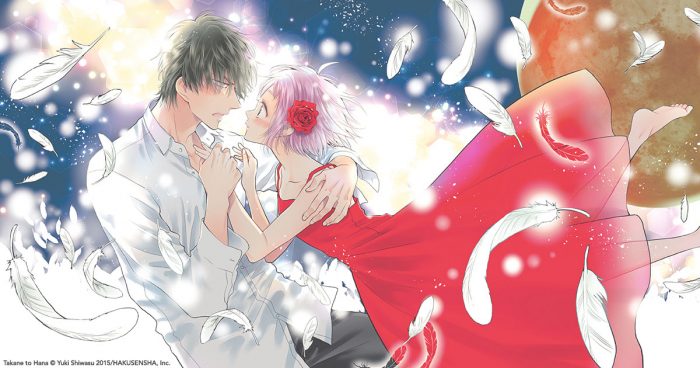
Let’s be honest, there’s a lot of manga out there. Even within your favorite genre, there are bound to be titles that just don’t work for you. Maybe it’s the artwork, the characters, or the plot.
If a manga series isn’t working out for you, don’t feel bad — it’s perfectly fine to drop it and find something else to read. After all, reading should be enjoyable, not something you force yourself to do!
As readers and reviewers of manga, we naturally have a lot of series we read, but also many that we’ve stopped reading for one reason or another. Today on Honey’s Anime, we’re reflecting on 5 Manga Series We’ve Dropped and why we dropped them!
5. Deadman Wonderland
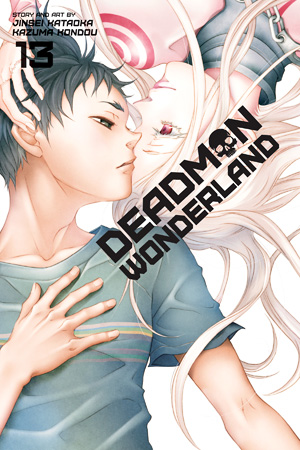

- Authors: Kataoka Jinsei (Story), Kondou Kazuma (Art)
- Genres: Action, Drama, Mature, Sci-fi, Shounen, Supernatural, Tragedy
- Volumes: 13 (Complete)
- Published: February 2014 – February 2016
Starting off our list today is Deadman Wonderland, an action-packed shounen that somehow fails to land the right punches. The story follows Ganta Igarashi, a boy framed for the brutal murders of his classmates and sent to a deadly theme-park-turned-prison named “Deadman Wonderland.”
The prisoners of this strange place are monitored 24/7, placed on permanent death row, and forced to enter dangerous, life-or-death games just to survive another day without being executed. Eventually, more layers of the Wonderland are exposed, revealing human experimentation and the truth behind Ganta’s framing. Ganta reunites with his long-lost childhood friend, Shiro, who adopts a dangerously obsessive relationship with him.
We left this haunted house attraction after Volume 5, frustrated that the story wasn’t doing anything meaningful. Deadman Wonderland has all the right components to make itself unique, but lacks the flair to bring them together. Each volume promised to reveal more about the story and its characters, but it seemed to be inventing pointless revelations just for the sake of shocking the reader.
There’s definitely an appeal to Deadman Wonderland’s spiral of broken personalities and horrific crime, with an overwhelmingly bleak opinion on the corrective system…but ultimately the series just wasn’t cohesive enough for us to persevere.
4. Shokugeki no Soma (Food Wars)
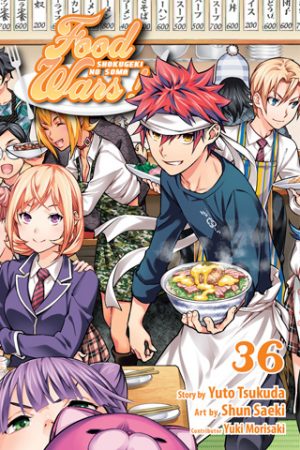

- Authors: Morisaki Yuuki, Tsukuda Yuuto (Story), Saeki Shun (Art)
- Genres: Comedy, Drama, Ecchi, School Life, Shounen
- Volumes: 36 (Complete)
- Published: August 2014 – June 2020
If you’ll indulge our pun-filled metaphor, Shokugeki no Soma (Food Wars) is like sitting down to the most delicious buffet you’ve ever had in your life. A veritable smorgasbord of treats is laid before you — beautiful artwork, ecchi fan service, a compelling character motivation. And then…there are 36 servings (volumes) of that same thing, over and over and over again.
No matter how delectable the buffet is, you’re going to get sick of it eventually. For us, we tapped out at Volume 15 of young chef Soma’s journey to conquer an elite culinary school against Japanese and internationally renowned chefs. The manga is basically the Masterchef television series adapted to paper, which works wonderfully early on, but quickly loses its appeal in repetitive storylines.
Romances were teased, but never delivered upon, instead reducing the female cast to pure fan service — we’re all for ecchi content, but continually having multiple relationship flags raised, only for the plot to never develop just felt…mean. Other characters aren’t done much better either, and the protagonist retains his boisterous, fiery approach to life without much meaningful growth.
The culinary aspect of Food Wars is definitely worthy of praise, and if you love intricately drawn food (in either the manga or the anime adaptation), there’s plenty to savor here. But in the end, the dish holds some great ingredients that are watered down by a flavorless broth. (That’s it for the food puns, we promise!)
3. Takane and Hana
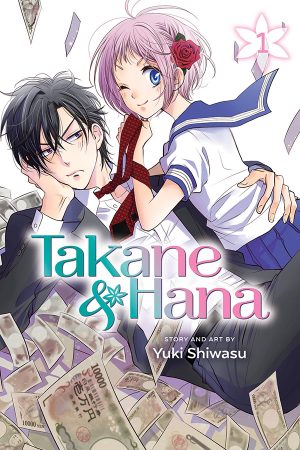

- Authors: Shiwasu Yuki
- Genres: Comedy, Romance, School Life, Shoujo
- Volumes: 18 (Complete)
- Published: February 2018 – December 2021
An age-gap romantic comedy about a pompous, self-absorbed business heir, and a sassy, sarcastic teenager — clearly this should have had our name written all over it. So how did Takane and Hana end up on our list?
Perhaps it’s the nature of Takane and Hana’s origin as a one-shot, because the first volume was excellent, but it was all downhill from there. The comedy was riotous, with fiery clashes between the older Takane and the younger Hana…but five volumes later, the same jokes were still being trotted out, getting significantly less funny each time.
Despite the main characters sharing a kiss in the first chapter, the jump from one-shot to serialization completely undid any significance of that moment. Takane acts like an ass for almost all of his on-page time, only to have one redeeming moment per volume that encourages the reader to think “maybe he’s an okay guy.” Hana, to her credit, is consistently kind and willing to defend herself and her friends…but her reluctance to ever admit her feelings is more tedious given the first chapter’s ending.
This isn’t a big issue in other rom-coms — such as Kaguya-sama wa Kokurasetai - Tensai-tachi no Renai Zunousen (Kaguya-sama: Love is War) — but a series like that has multiple character threads and consistently funny moments. Takane and Hana relies on the same jokes, while never moving the romance forward; and that’s why we ended up dropping Takane and Hana.
We’re disappointed, but we hope Shiwasu’s next work – Tamon-kun Ima Docchi!? – gets adapted to English, since we loved the artwork and characterization, if not the execution. There’s room to improve, and we’re quietly hopeful her next series will polish Takane and Hana’s rough edges.
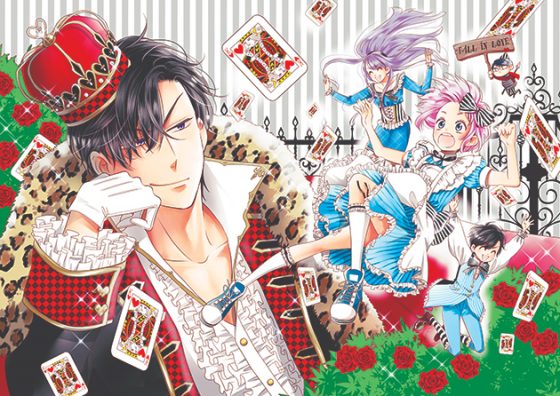

2. Tsukiatte agete mo ii ka na (How Do We Relationship?)


- Authors: Tamifuru
- Genres: Comedy, Drama, Romance, School Life, Shounen, Slice of Life, Yuri
- Volumes: 8+
- Published: June 2020 – present
Regular readers of Honey’s Anime – and this writer’s articles – will no doubt be surprised to see a yuri series on the “Dropped” list. But just because something’s within a genre we like doesn’t automatically make it amazing.
We will admit that we loved the premise behind Tsukiatte agete mo ii ka na (How Do We Relationship?): two college-aged women falling in love and exploring the gap between their body count and their own sexuality. In a genre dominated by high school characters exploring their first love, this combination of college-aged women, along with one being new to dating and the other having had partners before, offered an interesting power-balance dynamic.
Somehow, though, How Do We Relationship? feels like it’s asking itself that same question more often than the characters. The plot is enjoyable enough, but there isn’t a clear direction, especially when dealing with heavy elements like sexuality and attraction. The slice-of-life genre benefits from having a wholesome air to the content, but How Do We Relationship? is often so heavy that it’s hard to feel joy in the day-to-day moments.
Thankfully, there are lots of (yuri?) fish in the sea, but How Do We Relationship? just wasn’t our catch of the day.
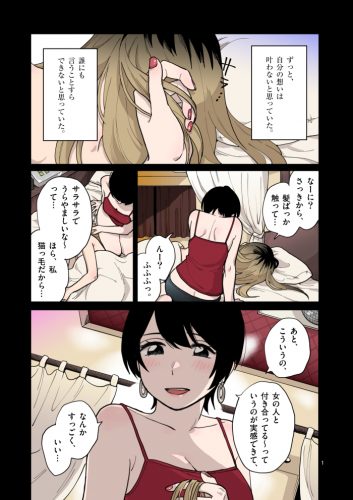

1. Platinum End
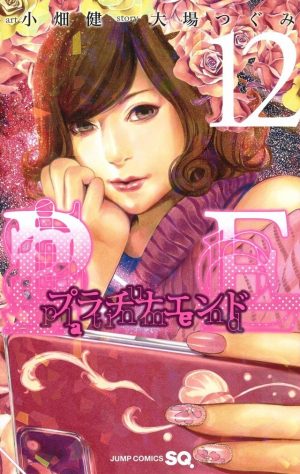

- Authors: Ohba Tsugumi (Story), Obata Takeshi (Art)
- Genres: Mature, Mystery, Psychological, Romance, School Life, Shounen, Supernatural, Tragedy
- Volumes: 14 (Complete)
- Published: October 2016 – March 2022
In the words of Fall Out Boy, “[we] always make such expensive mistakes.” Platinum End by the legendary Ohba and Obata should have been a surefire win, but instead, we sank way too much money into the series, hoping that the next volume would get better…but after ten volumes (nearly the end of the series), we finally cashed out.
We understand the huge pressure facing Ohba and Obata, since they’ll likely never live up to the insane success of Death Note. Platinum End clearly intended to be a spiritual successor, but fell well short of the mark. The series begins with the death of God Himself, kicking off a battle royale between 13 chosen successors to become the next God. These candidates are given an angel, along with an arsenal of powers that include instant-kill arrows, arrows that force subservience, and ultra-fast wings.
The main conflict arises between the competing candidates, and the idea that many of these heavenly tools can trigger a stalemate – for instance, two candidates shooting the same type of arrow at each other will stalemate; and two pairs of wings are always the same speed. There are also minute details surrounding the angels and their visibility, similar to the Shinigami in Death Note.
Logically, we expected a psychological battle-of-wills between the candidates worthy of Light and L, but alas, these stalemates are more often boring than tense. That’s to say nothing of main character Mirai, whose desire to never take a life was clearly intended as a mirror image of Death Note’s Light…but instead, gave us a whiny, unlikeable protagonist who continually endangers his comrades.
Our biggest regret for Platinum End? We should have dropped it sooner…
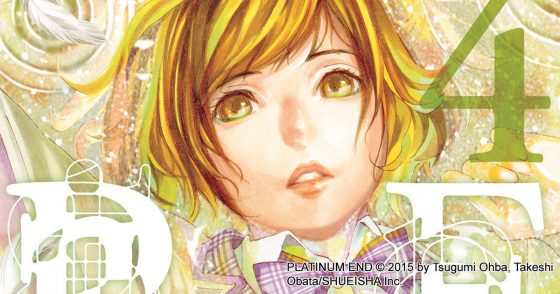

Final Thoughts
In 2022, the cost of manga has been rising, and the availability is shrinking, so if you’re going to commit to reading a series, it could be quite the financial investment (at least, if you’re a physical collector).
Remember: if something’s not your cup of tea, there’s no shame in putting it down and reading something else. Reading is a hobby to enjoy, not suffer through.
Do you think we abandoned some of these manga too early? Do you have your own series that you stopped reading? Let us know down in the comments below, and as always, thanks for reading!
Recommended Post
Why We Dropped Platinum End
Recommended Post
5 Manga By Famous Mangaka That Got Discontinued
Recommended Post

